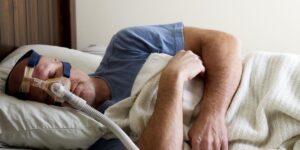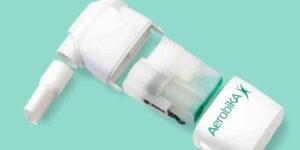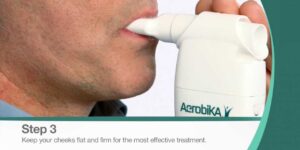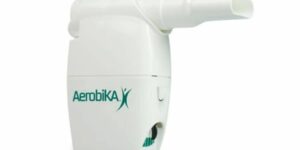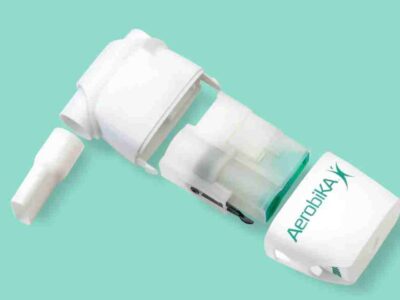
How Often to Clean Your Aerobika Device: A Practical Guide for Maintenance and Hygiene
Nov 19 2025 Aerobika Device sleep apnea australia sleep apnea solutions sleep apnea symptomsIntroduction
Proper maintenance and hygiene are crucial for ensuring the effectiveness and longevity of your Aerobika device. Whether you use it as an OPEP device for mucus clearance or as part of your PEP therapy, regular cleaning is essential for keeping it in optimal condition. In this article, we’ll guide you through how often to clean your Aerobika device, provide a step-by-step cleaning routine, and explain the importance of proper maintenance for both your health and the device’s performance.
Why Regular Cleaning of the Aerobika Device is Important
Cleaning your Aerobika PEP device is essential for multiple reasons. First and foremost, it ensures the device remains effective in helping you with mucus clearance. Over time, the buildup of saliva, mucus, and other residue can obstruct the airflow and impact the device’s functionality. Regular cleaning prevents this, allowing the device to operate at its full potential.
Additionally, cleaning your Aerobika device helps prevent the growth of bacteria and mold, which can accumulate in warm, moist environments like the mouthpiece or tubing. By maintaining a clean device, you reduce the risk of respiratory infections or other complications. Keeping your Aerobika OPEP device hygienic also contributes to its durability, ensuring it lasts longer and performs consistently.
How Often Should You Clean Your Aerobika Device?
The frequency of cleaning your Aerobika device depends on how often you use it. Here’s a general guideline:
1. After Every Use
It is highly recommended to clean the Aerobika device after every use, especially the mouthpiece and tubing. Since these parts come into direct contact with saliva and mucus, they can quickly accumulate bacteria if not cleaned regularly. For most users, a quick rinse with warm, soapy water is sufficient to remove any residue and prevent contamination.
2. Daily Cleaning
While cleaning after every use is essential, it’s a good idea to perform a more thorough cleaning every day. This includes washing the entire device, not just the mouthpiece. Over time, small particles and bacteria can build up in the device, even if it’s rinsed after every use. A daily deep cleaning ensures you’re removing any potential buildup that could compromise the device’s performance.
3. Weekly Deep Cleaning
In addition to daily cleaning, it’s advisable to perform a deeper clean on your Aerobika device once a week. This includes disassembling the device (according to the manufacturer’s instructions) and sanitizing each part with a mild disinfectant solution. Deep cleaning once a week ensures that your Aerobika OPEP device remains hygienic and free from bacteria, ensuring a longer lifespan and better function.
4. After Prolonged Periods of Non-Use
If you’ve not used your Aerobika device for an extended period, it’s important to clean it thoroughly before you start using it again. Even if the device hasn’t been used, moisture and bacteria can still accumulate, potentially leading to an infection or decreased effectiveness. A thorough cleaning before use is essential in these cases.
Step-by-Step Guide to Cleaning Your Aerobika Device
Here’s a detailed step-by-step guide on how to clean your Aerobika device to ensure it’s properly maintained:
Step 1: Disassemble the Device
Before cleaning, make sure to disassemble the Aerobika device according to the manufacturer’s instructions. Separate the mouthpiece, tubing, and any other removable components. This makes it easier to clean each part thoroughly.
Step 2: Rinse with Warm, Soapy Water
Use warm water and mild dish soap to rinse the mouthpiece and tubing after each use. Gently wash each part with your hands or a soft cloth, ensuring you remove any mucus or saliva. Avoid using harsh chemicals or abrasive materials that could damage the device.
Step 3: Sanitize (Weekly)
Once a week, you should sanitize the Aerobika device. Use a mild disinfectant or a cleaning solution specifically recommended by the manufacturer. Soak the parts in the solution for 10-15 minutes, then rinse thoroughly with water to ensure no residue remains.
Step 4: Dry the Parts
After cleaning, it’s important to dry the Aerobika device completely. Lay the parts flat on a clean towel or use a clean, dry cloth to wipe off excess water. Avoid using direct heat sources (like a hairdryer), as this could damage the device.
Step 5: Reassemble and Store
Once everything is dry, reassemble the device. Store it in a clean, dry area when not in use to avoid dust or dirt buildup. Make sure the device is stored in a safe place where it won’t be damaged.
Additional Tips for Maintaining Your Aerobika Device
To ensure that your Aerobika mucus clearance device works effectively for years to come, here are some additional maintenance tips:
Check the Filter Regularly: The Aerobika PEP device may have a filter that needs regular checking and replacement. If the filter appears dirty or clogged, replace it according to the manufacturer’s guidelines to maintain optimal performance.
Inspect the Device for Wear and Tear: Regularly check for any cracks, leaks, or damage to the device. If any parts are damaged, contact the supplier for a replacement. Using damaged parts could affect the efficiency of the device and cause discomfort.
Avoid Sharing Your Device: To reduce the risk of infections, avoid sharing your Aerobika device with others. Always use your own mouthpiece or mask, and ensure the device is cleaned properly after every use.
Where to Buy the Aerobika Device in Australia
If you’re looking to buy the Aerobika device in Australia, there are several options available. You can purchase it online from trusted retailers like eBay, Amazon, and Australia’s Medical Supplies. Alternatively, many medical equipment suppliers in Australia, such as Oxygen Australia and Lincare, offer Aerobika OPEP devices for sale or rent. Make sure to compare prices and check the warranty and return policies before making a purchase.
Conclusion
Regular cleaning and maintenance are essential for ensuring that your Aerobika device remains in optimal working condition. By following the cleaning routine outlined above, you can prolong the life of your Aerobika PEP device, improve its effectiveness, and avoid potential infections. Whether you’re using it for mucus clearance or respiratory therapy, proper maintenance ensures the device continues to support your respiratory health. Always follow the manufacturer’s instructions for cleaning and storage, and remember to replace parts as needed.
How do I know when to replace my Aerobika device parts? Inspect the device regularly for wear and tear. If any parts, such as the mouthpiece or filter, appear damaged or worn, replace them promptly to ensure continued efficiency. Where can I buy the Aerobika device in Australia? You can purchase the Aerobika device from online retailers such as eBay, Amazon, or Oxygen Australia, or visit a local medical supplier. Can I use any cleaning products for the Aerobika device? It’s recommended to use mild dish soap or a cleaning solution specifically designed for medical devices to avoid damaging the Aerobika PEP device. What is the best way to clean the Aerobika device? Rinse the mouthpiece and tubing with warm, soapy water after every use. Weekly, use a disinfectant solution to sanitize all parts, then dry them thoroughly. How often should I clean my Aerobika device? You should clean the Aerobika device after every use, with a more thorough cleaning recommended daily and a deep clean once a week.
Read More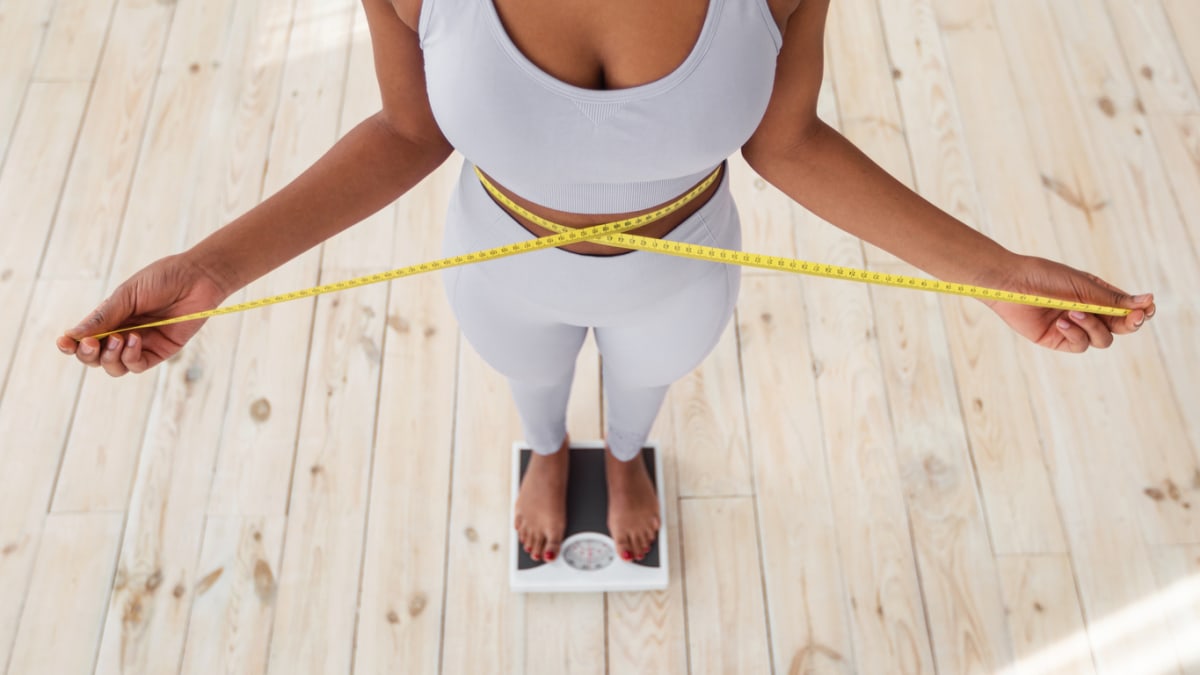
Does weight loss eliminate sleep apnea?
Dec 30 2022 Sleep Apnea Treatment how does sleep apnea happen sleep apnea australia sleep apnea solutions sleep apnea symptoms sleep apnea treatmentHave you lately begun experiencing headaches when you first wake up? Even after getting what you would have thought to be a decent night’s sleep, do you often feel exhausted? If this describes you, you can suffer from a disorder called sleep apnea. Your spouse could have seen the red flags that anything was awry while you were asleep.
Breathing disturbances during sleeping are a very typical symptom of the disease known as sleep apnea. The most prevalent kind of sleep apnea, obstructive sleep apnea (OSA), is characterized by disturbed breathing brought on by a constricted or occluded upper airway. To breathe through a straw is how it feels. A person with severe OSA may have up to 30 breathing interruptions per night.
Many significant connections between sleep apnea symptoms and excess body weight are emerging as the medical community learns more about this condition. Not only may being overweight cause sleep apnea, but it can also make the condition worse and have a negative impact on one’s health. The vicious cycle of inadequate sleep and weight gain may occur. Fortunately, several studies have shown that losing weight helps with sleep apnea. It’s critical to comprehend the intricate relationships between sleep apnea and obesity if you suffer from either illness.
How Obesity Affects Sleep Apnea
Although a number of medical problems enhance the risk of having sleep apnea, overweight or obese persons are more likely to get OSA. Pharyngeal fat is a kind of fat deposit that develops as a result of being overweight. When the airway is already relaxed during sleep, pharyngeal fat might obstruct the upper airway. Given that air is physically being forced into a narrowed airway, snoring is one of the most prevalent sleep apnea symptoms.
In addition, a person’s chest wall may be compressed due to greater abdominal girth from extra fat, resulting in a reduction in lung capacity. This decreased lung capacity decreases airflow, increasing the risk of the upper airway collapsing as you sleep. A increasing body mass index (BMI), which calculates a person’s body fat based on height and weight, is associated with an increased risk of OSA. The risk of OSA increases sixfold with even a 10% weight gain.
Less frequent factors that contribute to sleep apnea include big tonsils that obstruct the airway, physical characteristics like a large neck or small throat, endocrine illnesses (including diabetes and thyroid disease), acid reflux, lung conditions, and heart issues. But between 60 and 90 percent of persons with OSA are overweight.
Effects of obesity and sleep apnea on health
Patients with sleep apnea significantly stress their cardiovascular, metabolic, and pulmonary systems because they don’t get enough good sleep. This may be especially concerning for obese individuals since obesity might increase the risk of metabolic, lung, and cardiac issues, perhaps exacerbating their existing health issues.
Cardiovascular Health and Sleep Apnea
A person’s whole cardiovascular system is impacted by sleep apnea in a number of ways. The body’s oxygen level reduces each time there is a breathing pause, setting off the “fight or flight” reaction. The reaction causes a spike in blood pressure and a rise in heart rate, which wakes the person up and forces them to reopen their airway. Throughout the night, this cycle keeps repeating. Atherosclerosis, or the build-up of plaque in blood arteries, which is linked to heart attacks, strokes, and high blood pressure, may develop as a result of the cyclical rising and decreasing blood oxygen levels.
The component of the neurological system that regulates pulse and blood flow is disturbed by sleep apnea, and it also raises blood glucose and carbon dioxide levels, increases insulin resistance, and modifies the flow of oxygen and carbon dioxide. As a consequence, among other things, sleep apnea is linked to the following cardiac, lung, and metabolic issues:
Hypertension (high blood pressure), Heart failure, among other arrhythmias, including atrial fibrillation
Transient ischemic attacks (TIAs), commonly referred to as “mini-strokes,” and stroke
Metabolic syndrome; Type 2 diabetes; Coronary heart disease (obesity, hypertension, diabetes, and dyslipidemia)
Sleep apnea and obesity hypoventilation syndrome
In persons with obese hypoventilation syndrome, OSA is commonly present (OHS). OHS occurs when a person’s chest wall is compressed due to excess weight, making it difficult for them to breathe deeply and rhythmically. Even while up to 90% of OHS sufferers also have sleep apnea, not everyone with OSA also has OHS. OHS risk is associated with BMI, and it increases to approximately 50% in those with BMIs above 50.
OHS, like sleep apnea, may increase carbon dioxide levels in the blood while lowering oxygen levels and leading to high blood pressure and heart failure. Both of these disorders significantly increase the risk of cardiovascular disease in patients. Unfortunately, the risk of mortality is higher in OSA patients with severe OHS.
What does sleep apnea talk about?
When you continually lose consciousness and stop breathing while you’re sleeping, you have a condition called sleep apnea. You may go without breathing for anything between a few minutes and a few seconds at a time. Sleep apnea may have a significant detrimental impact on a person’s health and wellbeing, even though it often does not endanger life.
According to studies, those who have sleep apnea are far more prone to have difficulties including heart attacks and other cardiovascular issues. Given the seriousness of this condition, you are definitely interested in the available treatment options. For instance, you may have heard that for some individuals, losing weight might help cure or support sleep apnea. Is that correct?
Putting on weight and having a sleep disorder
The results of recent research suggest that there may be a considerable association between obesity and sleep apnea. In fact, if you are overweight, you can be more likely to run into this kind of issue. Obese persons are more likely to have sleep apnea, although not all of them do. Similar to the last point, not everyone with sleep apnea is overweight. In light of the aforementioned, you should seriously consider arranging a medical examination if you are overweight.
This will determine whether or not weight loss might be advantageous for you. Typically, this entails measuring around the area of the neck that is the widest. In general, when a person’s neck circumference is 17 inches or greater in men and 16 inches or higher in women, their chance of having sleep apnea is greatly raised.
Does losing weight reduce sleep apnea?
If you are overweight, it is possible that losing a little amount of weight will be enough to completely cure the illness. On the other hand, owing to the fact that there are anatomical factors at play, this won’t always be the case. One can have large tonsils, a crooked nasal septum, or a receding chin. These are all illustrations of aberrant face features. Even with significant weight loss, none of these issues will be resolved; sleep apnea is only one of the probable side effects of being overweight. However, losing a few pounds may also have a variety of other advantageous effects.
It may improve your joints, relieve any high blood pressure issues you may be experiencing, and give you noticeably more energy. Therefore, losing weight is never going to be a bad idea, and it most definitely won’t make your sleep apnea worse. In the long term, it can only improve matters.
Is it more difficult to keep a healthy weight?
According to several research, those who have sleep apnea may find it more difficult to lose weight. This is because it slows down your metabolism, which in certain cases may prevent you from losing any weight at all. The research’s results indeed seem to go in this manner. Because of this, it’s essential to make sure that you are addressing your sleep apnea before you start making commitments to attempt to lose weight.
Your ENT will be able to advise you on this decision and make sure you have the best possible chance of reaping the rewards of taking this move. Sleep apnea may be treated using a broad range of medical strategies.
The most common kind of therapy is likely continuous positive airway pressure, or CPAP. The majority of the time, a machine that may be positioned near to the user’s bed helps with this. Making progress toward your weight reduction objectives may be more difficult due to the pressure the sickness puts on your body. Examples of this condition include glucose intolerance, insulin resistance, and blood pressure increases.
In some situations, an ENT may advise surgery to make it easier for you to lower your total body fat percentage.
Alternative forms of therapy
It is crucial to be informed that there are more sleep apnea treatment choices. For instance, you can spend money on a device that not only makes it possible for you to breathe regularly but also ensures that it is not limited in any way. A mask like this may be rather expensive since it either uses electricity or a pump-based mechanism to work.
You can also consider having surgery in a similar vein. Be aware that not everyone will have the chance to pick this route. Your unique situation and the cause of your sleep apnea will dictate what to do. If this course of action is the right one for you, your ENT will be able to advise you on it.
Whether or whether you need therapy for the condition depends on the severity of your sleep apnea, the existence or absence of symptoms like daytime fatigue, and any other current health issues. If you have risk factors for cardiovascular disease, for example, your doctor could opt to treat your sleep apnea even if it is just mild. On the other hand, even if you don’t feel weary at all, your doctor may advise that you receive treatment if you have a significant case of sleep apnea.
The therapy option that is most often suggested is the continuous positive airway pressure (CPAP) machine. A Continuous Positive Airway Pressure (CPAP) machine works as you sleep to provide air pressure that keeps your neck wide by delivering moist air via your nose. There are no breaks in the breathing as a result.
According to Jun, “Continuous positive airway pressure (CPAP) is the treatment of last resort, and it is extremely effective. Researchers at Johns Hopkins University have looked at what happens to sleep apnea patients who do not utilize their CPAP machines and discovered some startling results. The study’s conclusions indicate that the apnea that resulted raised blood sugar levels as well as heart rate, blood pressure, and stress hormones. This is a similar response to what may happen if you were to speak in front of a huge crowd. It’s essentially the same as that type of stress response, claims Jun. The author states, “I would compare sleep apnea to something that happens on a nightly basis like that.”
Related: Finding it hard to tackle your sleep apnea? Do this
Read More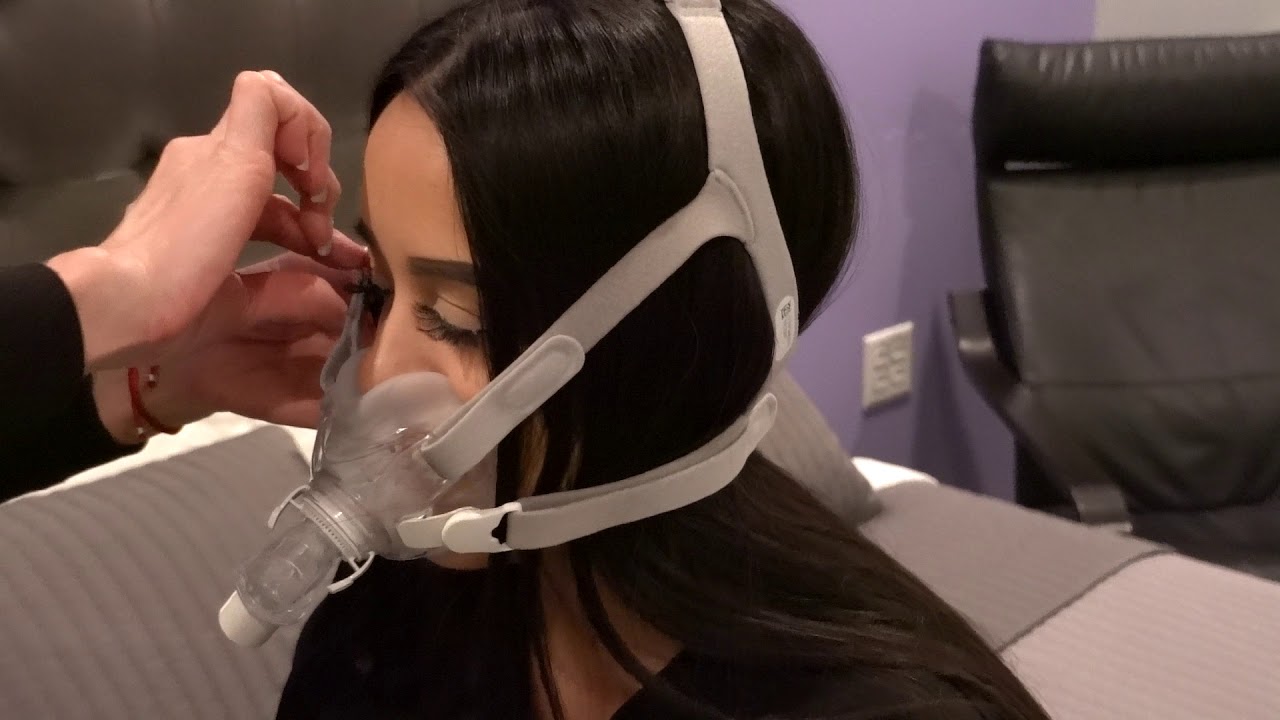
Finding it hard to tackle your sleep apnea? Do this
Dec 30 2022 Sleep Apnea Treatment how does sleep apnea happen is sleep apnea dangerous sleep apnea australia sleep apnea solutions sleep apnea symptoms sleep apnea treatmentAlthough it cannot be replaced, getting a good night’s sleep might be difficult if you have obstructive sleep apnea (OSA).
Sometimes throughout the night, people with sleep apnea have airway collapse, which causes them to stop breathing while they are sleeping. Dr. Mendez asserts that as a result, people “will shift into a lighter state of sleep or totally wake up.” According to the Australian Sleep Apnea Foundation, these awakenings may occur five to more than thirty times each hour.
People with sleep apnea usually have insufficient sleep, which frequently results in increased daytime fatigue. In addition to feeling sleepy, people may find it difficult to focus and handle emotional problems like grief.
Mendez claims that “sleep disruption also affects our hormones, namely by boosting ghrelin and reducing leptin, which may increase your appetite.” Additionally, it negatively affects immunity, making you more susceptible to illnesses like colds and other infections.
Additionally, sleep apnea may increase the risk of cardiovascular problems. According to a study that was published in February 2019 in the Australian Journal of Respiratory and Critical Care Medicine, people who experience daytime sleepiness as a result of sleep apnea may be more likely to develop heart failure, a chronic condition in which the heart is unable to pump blood effectively.
When you wake up from sleep, your breathing, blood pressure, and heart rate all increase, and your body is pumped with adrenaline, which is bad for your arteries and blood pressure, according to Mendez.
How to Identify the Symptoms and Signs of Sleep Apnea
While snoring is perhaps the most well-known symptom of sleep apnea, there are other symptoms as well. Other symptoms include gasping or choking while you sleep, breathing pauses at night (frequently noticed by a partner), excessive daytime sleepiness, waking up feeling exhausted, morning headaches, difficulty concentrating, memory problems, mood problems, and repeatedly waking up during the night to use the restroom.
If you have any of these symptoms, have recently been diagnosed with atrial fibrillation (an abnormal heartbeat), high blood pressure, or both, along with daytime sleepiness or without, Mendez urges that you talk to your doctor about the possibility of sleep apnea. He claims that snoring is not always present in women who have insomnia, and some people may become aware of their possible sleep problem owing to an activity tracker like a Fitbit.
Be open to the possibility even if you don’t think you exhibit “typical” symptoms of sleep apnea.
Mendez claims that if your doctor has a hunch that you have sleep apnea, he or she may then offer you an at-home sleep apnea test, avoiding the need for you to go to a sleep clinic for an assessment. The patients may get it a lot more quickly. The option to get this test might save your life, the speaker says.
How Sleep Apnea Treatment Can Increase Your Energy
If you have been given a sleep apnea diagnosis, the right treatment may help you stop feeling sleepy throughout the day. Your doctor can suggest that you make lifestyle changes, prescribe an oral or dental device that must be installed by a qualified dentist, or give you instructions on how to use a CPAP machine, which utilizes a mask to keep your airway open while you sleep. The best choice for you will be determined by your insurance coverage, the severity of your sleep apnea, and the availability of nearby experts.
You should avoid utilizing dental devices available over the counter or online to cure your sleep apnea on your own. These goods, in Mendez’s opinion, are not only not recommended, but they also could be dangerous. For instance, he asserts that certain dental products might damage your teeth.
The good news is that with proper treatment, your sleepiness should go away and your energy level should rise. Symptoms go away after a few days to a week or two, said Mendez. According to the doctor, how badly affected individuals feel and function during the day may fluctuate significantly after only one night.
Sleep apnea treatments that work
In addition to learning about a sleep apnea treatment, you may utilize these techniques to battle the fatigue you feel the next day.
Sleep on your side first, if possible.
Mendez claims that sleeping on one’s side, which maintains the airway open, may be all that’s necessary for people with mild kinds of sleep apnea. If you wear a T-shirt with a tennis ball sewed into the back or place a body pillow against your back, you may be able to keep yourself from rolling onto your back while you are sleeping.
Achieve fitness.
According to Mendez, who points out that additional fat may obstruct the airway, weight reduction often benefits the great majority of people with sleep apnea. In a research published in the journal Sleep Medicine in March 2014, it was shown that losing even a little amount of weight significantly decreased the likelihood that a person’s sleep apnea would worsen. In certain cases, weight loss may even be able to cure mild sleep apnea. Of course, not everyone who loses weight will benefit since even those who are thin or of a normal weight risk developing sleep apnea.
Find sleep-related treatments.
According to the NSF, sleep apnea is also associated with insomnia, a condition in which you have trouble becoming (and staying) asleep.
Mendez suggests consuming less coffee, avoiding using electronics after dark, and refraining from checking the clock. Get out of bed and do something pleasant if you’re having difficulties falling asleep, then try again later. You should also have any other medical conditions such limb mobility disorders, anxiety, or depression that can affect your sleep evaluated.
Make sure your food will provide you extra energy.
One of the best ways to increase your energy levels is by eating the right foods. Instead of stimulating foods like soda, candy, and other drinks with added sugar, go for healthy meals like fresh fruits and vegetables. (The Academy of Nutrition and Dietetics claims that they could offer you a momentary thrill but will soon cause an energy crash.)
Avoid drinking.
Even while drinking a bottle of beer or a glass of wine before bed may help you sleep, your sleep apnea may become worse. According to Mendez, drinking alcohol makes your palate floppy, which raises the chance that it may collapse and lock up. Additionally, alcohol alters the tone of the muscles in your upper airway. Additionally, you should try to avoid sedatives like benzodiazepines as these could exacerbate your bouts of sleep apnea.
Cardiovascular risk, metabolism, and sleep apnea
According to Jun, several studies have linked sleep apnea to issues including type 2 diabetes, strokes, heart attacks, and even a reduced lifespan. Why are they connected? For starters, he points out that individuals with sleep apnea often have obesity, which significantly raises the risk of diabetes, stroke, and heart attack. Obesity is often the primary cause of both illnesses, according to Jun.
However, it’s crucial to remember that not all people with sleep apnea are fat. Additionally, data point to a separate connection between sleep apnea and diabetes. According to research from Jun’s team and others, sleep apnea may raise blood sugar levels and is linked to an increased risk of diabetes, regardless of weight.
For those who are obese or overweight, losing weight is essential for treating or preventing sleep apnea. People who have excess fat around their neck, mouth, and upper abdomen are more prone to developing sleep apnea. This weight contributes to airway collapse during sleep by narrowing the neck and pressing on the lungs.
As they age, women in particular need to exercise caution. Premenopausal women often gain weight in their hips and lower body rather than their bellies, but this habit changes with time. Weight starts to build up in typically “masculine” places like the stomach, which increases the risk of sleep apnea.
“After menopause, hormones alter, and women often begin to resemble males in terms of where they put on weight. After menopause, women’s rates of apnea start to catch up to men’s, so it’s important to be aware of the hazards of this condition, says Jun. 15
For improved health, sleep apnea must be identified and treated.
Sleep apnea must be treated since it may have long-term effects on your health. Although several high-profile deaths associated with sleep apnea, like that of Judge Antonin Scalia, have been reported, Jun claims that the real danger comes from harm done over time.
According to the apnea-hypopnea index, the severity of obstructive sleep apnea may vary from moderate to severe (AHI). The AHI counts how many breathing pauses you have per hour while you sleep.
By degree of severity, obstructive sleep apnea is divided:
Your AHI must be more than 30 (more than 30 episodes per hour) to be diagnosed with severe obstructive sleep apnea.
Your AHI must be between 15 and 30 to be diagnosed with moderate obstructive sleep apnea.
Your AHI must be between 5 and 15 to be diagnosed with mild obstructive sleep apnea.
Depending on how severe your sleep apnea is, if you have symptoms like tiredness, and other health issues, you may or may not require treatment. For instance, your doctor could decide to treat even moderate sleep apnea if you have heart disease risk factors. However, if your sleep apnea is severe, your doctor may urge that you get treatment even if you don’t feel tired.
A breathing equipment known as a CPAP, or continuous positive airway pressure machine, is the major therapeutic option. To keep your throat open while you sleep, a CPAP machine pumps humidified air via your nose at a pressure that keeps it open. Breathing pauses are avoided as a result.
The first-line therapy, CPAP, is quite successful, according to Jun. Recent research from Johns Hopkins examined what happens to metabolism at night when people with sleep apnea don’t use their CPAP devices. According to the research, the apnea that followed increased blood sugar, heart rate, blood pressure, and stress hormones—a reaction akin to what could occur if you were made to stand in front of a group and speak. It’s a lot like that kind of stress reaction, claims Jun. “I would compare sleep apnea to something similar occurring every night.”
Related: Does weight loss eliminate sleep apnea?
Read More